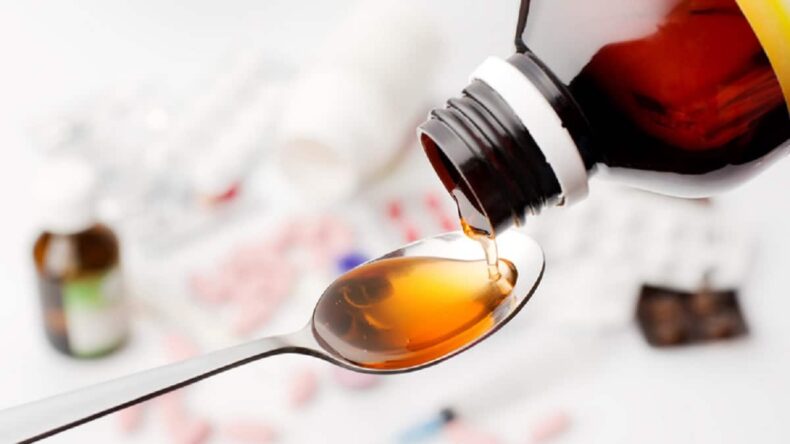The World Health Organization (WHO) issued a fresh alert on Tuesday about a sub-standard drug manufactured in Punjab and marketed by Haryana. This guaifenesin syrup was sold in the distant islands of Micronesia and the Marshall Islands, in the heart of the Pacific Ocean.
The alleged contaminated drug
India has already been flagged for substandard drug usage in the past. In October 2022 and early January 2024, respectively, the World Health Organization (WHO) issued specific warnings regarding cough syrups produced by two Indian companies, Maiden Pharmaceuticals, and Marion Biotech.
Diethylene glycol and ethylene glycol were allegedly present in the syrups. These toxic chemicals usually find applications as industrial solvents and anti-freeze agents. Even in small amounts, the drugs’ toxicity manifests as kidney injury, an inability to pass urine, and eventual death. The two syrups were linked to the deaths of many children in Gamibia and Uzbekistan, respectively, and alerts were issued for public awareness in an attempt to inhibit the usage of the syrup.

The latest instance of substandard drug manufacture has been attributed to QP Pharmachem Ltd. in Punjab. The marketer of the syrup has been stated to be Trillium Pharama in Haryana, according to the alert issued by WHO.
The contamination of guaifenesin
WHO issued the alert after analyzing samples of the syrup taken from a batch in the Marshall Islands and Micronesia in the Pacific Islands. The samples of the syrup contained a compound called guaifenesin, an expectorant used to provide relief from chest congestion and cough.
The quality control laboratories of the Therapeutics Goods Administration, Australia’s drug regulatory authority, analyzed the samples from the islands. The TGA analysis found the product to contain two contaminants -ethylene glycol and diethylene glycol- in unacceptably high levels.
According to the WHO, the product should not be consumed or used, especially by children, as it may cause fatal or serious injuries. Abdominal pain, nausea, diarrhea, headaches, and an acute kidney injury that could be fatal are some of the toxic effects that can occur.

WHO has also said that the alleged product might have enjoyed marketing authorizations in other countries in the Western Pacific region. It might also have been distributed via informal markets to other countries or regions. Moreover, neither the manufacturer nor the marketer has provided any guarantee of the safety and quality of the products to WHO to date.
The reply from the alleged company
The manufacturing company of the flagged product in Punjab is headed by Sudhir Pathak, MD of the firm based in Dera Bassi, Punjab. Pathak had denied ever exporting the product to the Marshall Islands or Micronesia.
He also went on to add that the Food and Drug Administration (FDA) of Punjab suspects the involvement of someone else who duplicated the product exported to Cambodia and then sold it in the Marshall Islands in an attempt to defame the government of India. According to Pathak, the FDA department had taken 18,336 bottles of cough syrup and sent them to Cambodia for testing purposes.

According to sources, Pathak said, “We do not export to Marshall Islands or Micronesia — we have no idea how the product was available there. This needs to be investigated. We don’t understand why they tested samples which have expired.” However, there has been no response from Trillium Pharma.
The Union Health Ministry of India has also not responded to a query about any involvement of Indias’ drug regulatory authorities over the production or export of the syrup to the Marshall Islands. This is the fourth time since October that international health organizations have expressed concerns about the quality of Indian medications.













